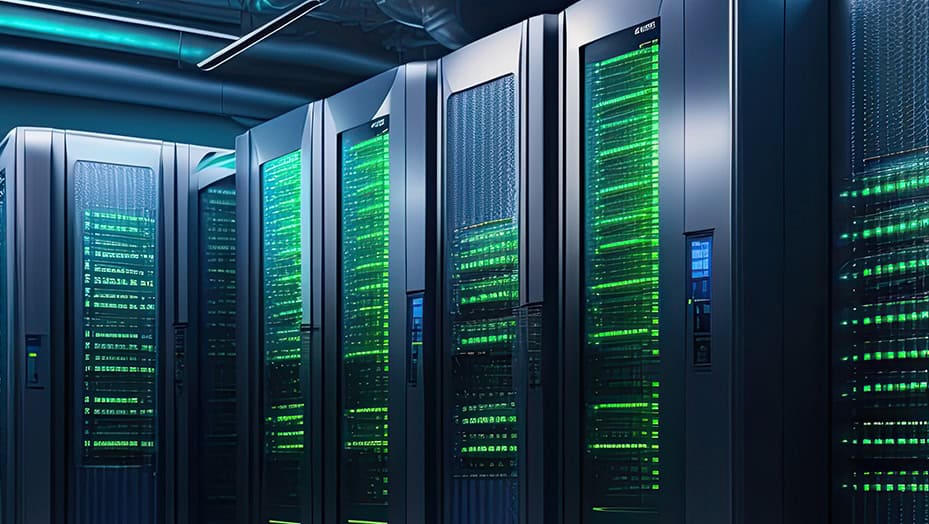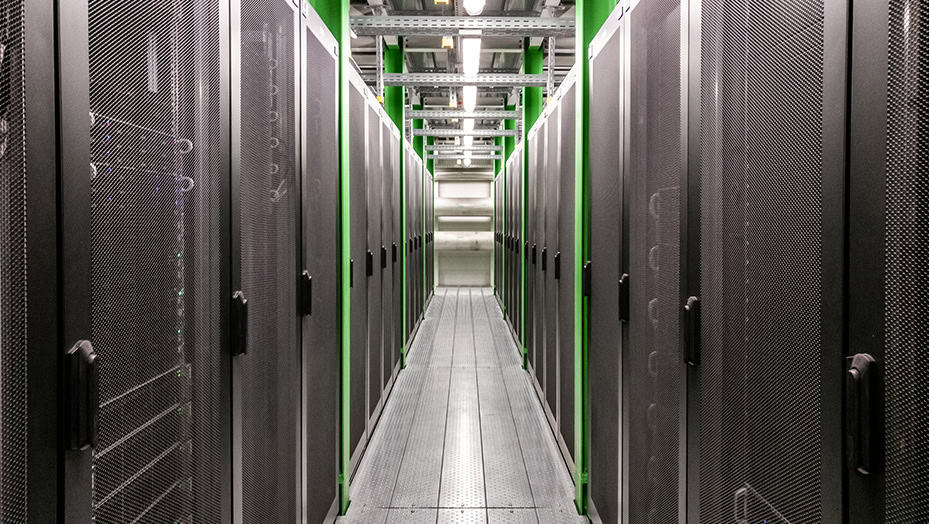
by
Accelsius Marketing
The Digital Age requires data centers to be the powerhouse for everything-from cloud storage to streaming services. As these centers continue to evolve, so does the need for efficient, scalable, and sustainable methods of cooling
What is Precision Liquid Cooling?
Precision liquid cooling Focuses on using liquids to specifically cool CPUs, GPUs, and other high-density hardware in data centers. Unlike traditional air cooling, which is resource-heavy and less efficient, liquid cooling is built to handle the intense heat generated in modern data centers. This helps keep key components running at their optimal temperatures, improving both performance and reliability.
Benefits of Precision Liquid Cooling for Data Centers
Energy Efficiency
One of the biggest benefits of precision liquid cooling is its energy efficiency. Compared to traditional cooling methods, liquid cooling uses far less energy. By cooling key components directly, it lowers the overall heat in the facility, which means the air-conditioning systems don’t have to work as hard.
Space Optimization
Liquid cooling also allows for more space-efficient designs in data centers. Unlike air cooling, which requires plenty of room for air circulation, liquid-cooled equipment can be packed more tightly. This helps businesses maximize their data center capacity without needing to expand their physical space.
Operational Costs Are Lower
Along with being energy-efficient, liquid cooling reduces long-term operating costs. Liquid-cooled systems typically need less maintenance and have fewer breakdowns from overheating, leading to longer-lasting hardware and less downtime.
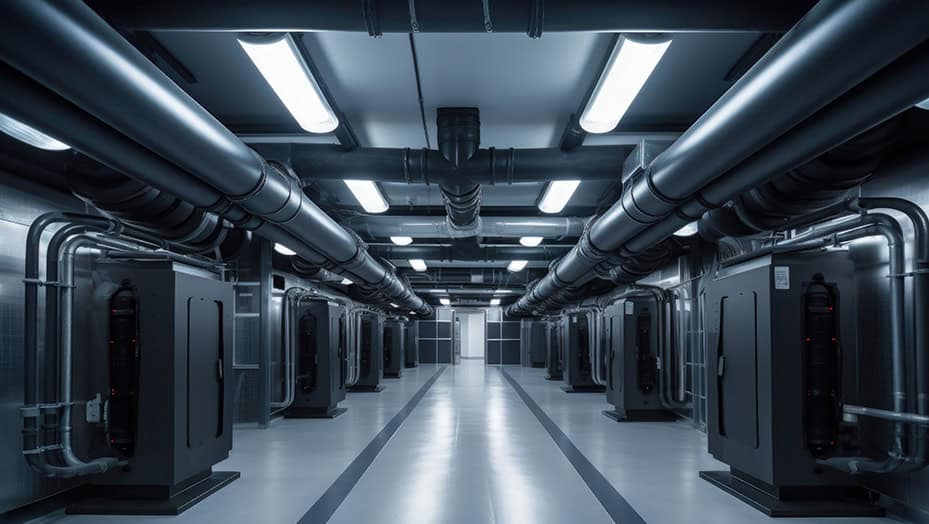
How Does Precision Liquid Cooling Work?
Closed-Loop Cooling Design
Precision liquid cooling uses a closed-loop system, where a coolant (either water or a special liquid) circulates through pipes that come into contact with heat-producing components. This system removes heat from the components and transfers it to a heat exchanger, where it can either be dissipated or reused for other purposes, like heating buildings.
Direct-to-Chip Cooling
One of the most advanced forms of precision liquid cooling is direct-to-chip cooling. It involves placing cooling plates directly on the chipsets of high-performance processors. By removing heat right at the source, direct-to-chip cooling is much more efficient than traditional methods, allowing for higher computational power in less space.
High-Density Data Centers
As data centers grow in size and power, cooling becomes more challenging. AI systems, machine learning, and cloud networks produce large amounts of heat in densely packed spaces. Precision liquid cooling is not just an advantage; it’s essential for keeping these high-density environments running efficiently. It helps data centers increase performance while minimizing the risk of overheating and opens new possibilities for space-efficient designs.
Sustainability and Environmental Impact
Sustainability is key to the future of data centers, and precision liquid cooling provides a greener alternative to air-based systems. Water, a more efficient coolant than air, enables waste heat to be recycled for heating buildings or returned to the power grid, reducing the environmental footprint of data centers. Liquid cooling also makes it easier to integrate renewable energy, further lowering overall power consumption.
Industry-Specific Applications
Precision liquid cooling is ideal for industries that rely on high-performance computing, such as finance, healthcare, and research. These sectors handle large datasets and use AI processing, which demands significant computational power. Liquid cooling’s ability to manage high thermal loads makes it the perfect solution for mission-critical applications.
- Finance: Financial institutions rely on high-frequency trading algorithms and complex data analytics, which can be computationally demanding. Precision liquid cooling ensures system stability and performance, even during peak trading times.
- Healthcare: Advanced medical imaging techniques like MRIs and extensive medical research require intense data processing. Liquid cooling helps healthcare systems remain reliable and functional for processing large volumes of patient data.
- AI and Machine Learning: AI training models generate significant heat during processing. Precision liquid cooling enables companies to maintain the performance needed for developing and deploying these technologies without overheating issues.
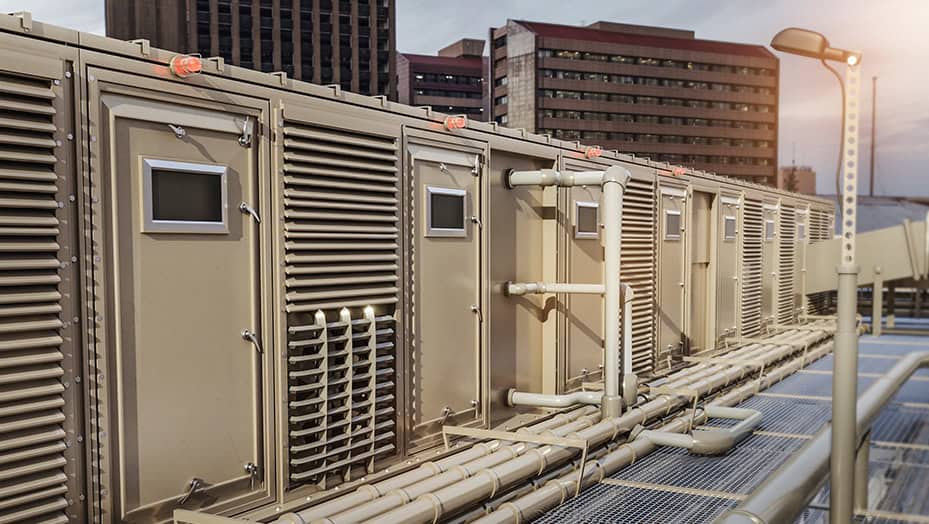
Conclusion:
Experience Accelsius‘ Precision Liquid Cooling Solutions firsthand.
If you’re looking to future-proof your data center, Accelsius offers cutting-edge precision liquid cooling systems tailored to high-density environments. Achieve lasting energy efficiency and sustainability. Schedule a demo today and discover how Accelsius can revolutionize your data center.
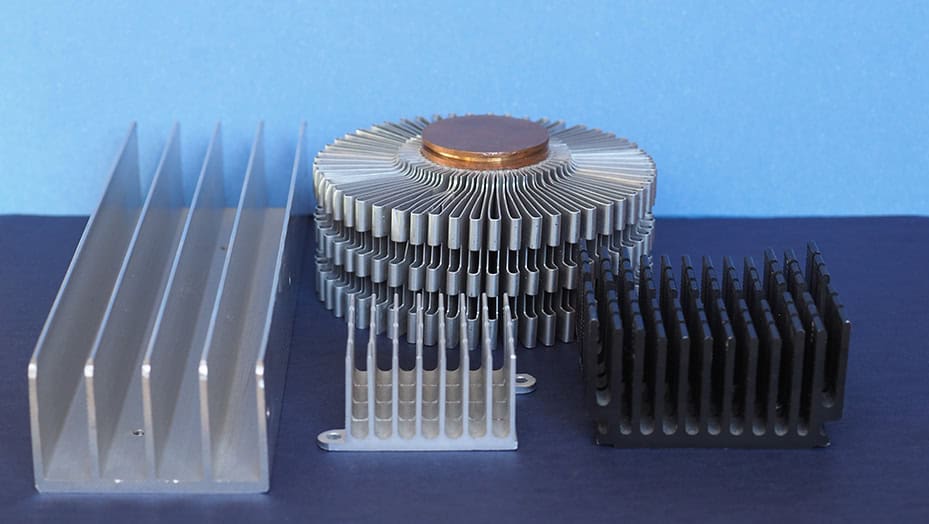
Frequently Asked Questions
What is precision liquid cooling?
Precision liquid cooling in a data center involves using liquid coolants to directly cool specific components, like CPUs or GPUs.
How does precision liquid cooling work compared to air cooling?
Unlike air cooling, which relies on fans to move air, precision liquid cooling uses liquids that directly absorb heat from components, making it more effective in high-density environments.
Can precision liquid cooling reduce energy costs?
Yes, precision liquid cooling can significantly reduce energy costs by lowering the power demand on traditional air conditioning systems.
Is precision liquid cooling environmentally friendly?
Yes, precision liquid cooling is more energy-efficient than air cooling, and the waste heat can be recycled, which helps reduce the overall carbon footprint.
Which industries benefit most from precision liquid cooling?
Industries that rely on high-performance computing, such as finance, healthcare, and AI development, gain the most from precision liquid cooling.
How do I get started with precision liquid cooling?
To get started, contact Accelsius for a personalized consultation. We offer customized solutions tailored to your data center’s needs.
